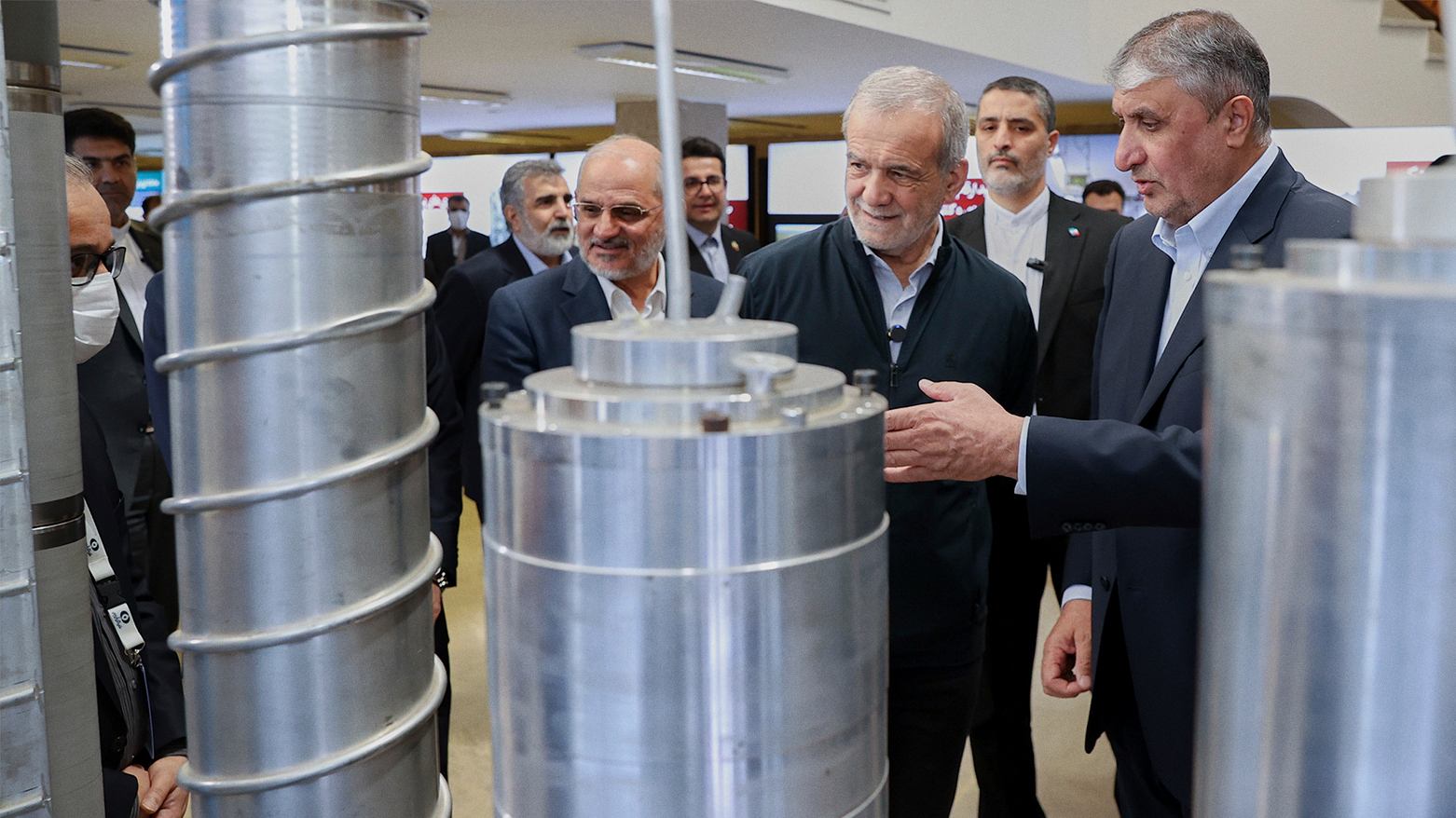Tehran Draws the Line: ‘Zero Enrichment’ Off the Table
Iranian Deputy Foreign Minister for Political Affairs, Majid Takht-Ravanchi, categorically rejected reports suggesting that Iran had considered a temporary halt to uranium enrichment as part of backchannel nuclear negotiations.

By Kamaran Aziz
ERBIL (Kurdistan24) – In a firm rebuttal of recent media speculation, Iranian Deputy Foreign Minister for Political Affairs, Majid Takht-Ravanchi, has denied any discussion of suspending uranium enrichment for three years, reaffirming Tehran’s unwavering commitment to its nuclear rights and strategic red lines.
Speaking to Iran’s semi-official Nour News outlet, Takht-Ravanchi categorically rejected reports suggesting that Iran had considered a temporary halt to uranium enrichment as part of backchannel nuclear negotiations. “No such proposal has been made. It is untrue, and we have not discussed any such plan,” he stated, countering claims that Qatar and Oman had floated the idea as a trust-building measure.
According to a report by The Guardian, regional intermediaries had proposed a full enrichment freeze for three years as a preliminary step toward reviving the 2015 Joint Comprehensive Plan of Action (JCPOA). The suggestion reportedly aimed to ease tensions and test Iran’s diplomatic flexibility in the face of increased Western sanctions. However, Tehran’s response has been unequivocal.
In the same week, Iranian Foreign Ministry spokesperson Esmaeil Baghaei also dismissed parallel narratives suggesting that a separate negotiation track was underway between Iran and the United States. According to statements published by IRNA, Baghaei emphasized that the only diplomatic process currently recognized by Iran is the one involving Foreign Minister Abbas Araqchi and U.S. special envoy Steve Witkoff, mediated by Oman. “This has been clearly stated,” Baghaei said, noting that transparency remains central to Iran’s approach.
At the heart of Iran’s rejection lies its strategic doctrine: uranium enrichment is not merely a technological function—it is a national symbol of resistance and sovereignty. Iranian officials view any halt, even temporary, as a capitulation to nuclear coercion.
Baghaei reinforced this stance, declaring that uranium enrichment is “absolutely non-negotiable.” He described it as a product of “decades of effort, hard work, and the sacrifices of our nuclear scientists,” firmly rejecting any foreign attempts to curb what Tehran sees as its sovereign right under the Non-Proliferation Treaty.
He further criticized what he described as Washington’s duplicity. “The very act of imposing sanctions while claiming to pursue a diplomatic process with Iran demonstrates a lack of seriousness and good faith,” Baghaei said. Negotiating with the U.S., he remarked, is like “dealing with a party that adheres to none of the standard norms of a diplomatic process.”
The discourse also included a warning to European signatories of the JCPOA. In response to their repeated threats to trigger the snapback mechanism—restoring pre-2015 UN sanctions—Baghaei warned that such actions would be interpreted as a rejection of diplomacy. “We will take reciprocal measures,” he stated. “This means a revision of the approaches we have taken so far on this issue.”
Analysts suggest that the recent leaks and reports in Western media may serve more to pressure Iran psychologically and shape public discourse than to test serious diplomatic pathways. Speculative proposals about a freeze are interpreted in Tehran as mechanisms to sow division or test domestic responses in preparation for diluted, limited deals.
From Iran’s perspective, however, enrichment is a non-negotiable pillar of its nuclear identity. Tehran appears intent on avoiding the pitfalls of past negotiations, seeking instead a framework based on dignity, parity, and sovereign control over its nuclear trajectory.
With regional diplomacy intensifying and nuclear diplomacy once again in flux, Tehran’s message is clear: it will negotiate, but not from a position of perceived weakness or compromise on core national interests. As Baghaei and Takht-Ravanchi underscored this week, any formula that includes “zero enrichment” is a non-starter.